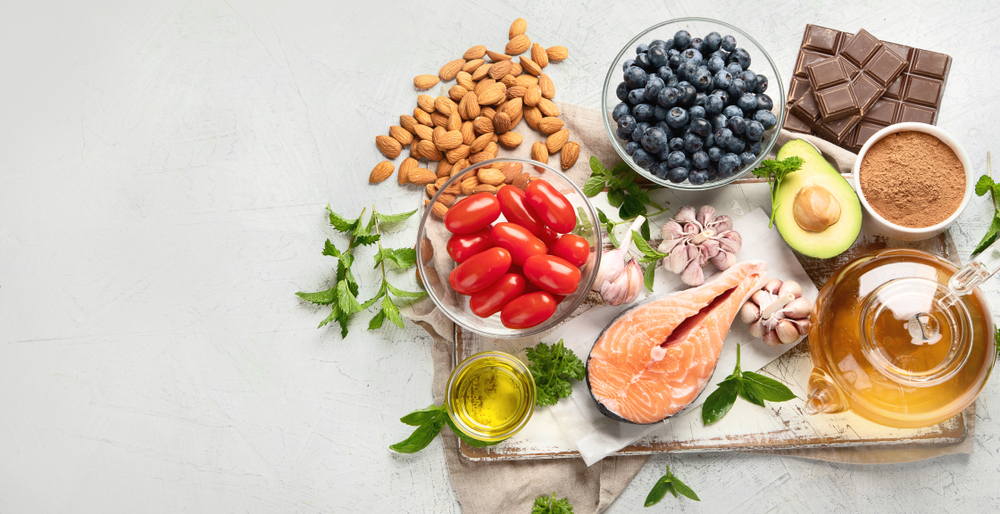Maintaining our cognitive capacities, especially memory, becomes crucial as we move through life. Many people are terrified of dementia because of its slow decline in mental abilities. A growing amount of research highlights the significant influence of our dietary choices on brain health, even though genetics and other unchangeable factors also play a part. This article explores the intriguing realm of “brain foods”—nutrient-dense foods that can actively help prevent dementia and fight memory loss, giving you the ability to feed your brain from the inside out.
It’s important to realize that no one food can prevent dementia. Rather, a steady and well-balanced diet that is high in particular vitamins, minerals, antioxidants, and good fats produces a synergistic effect that supports
The Pillars of a Brain-Boosting Diet:
Several key dietary components have been consistently linked to improved cognitive function and a reduced risk of dementia:
1. The Power of Omega-3 Fatty Acids: Fueling Brain Cell Communication
Oily fish like salmon, mackerel, sardines, and tuna are rich sources of omega-3 fatty acids, particularly DHA (docosahexaenoic acid) and EPA (eicosapentaenoic acid). DHA is a major structural component of brain cell membranes and plays a vital role in nerve cell communication. Studies suggest that adequate intake of omega-3s can improve memory, enhance cognitive function, and may reduce the risk of Alzheimer’s disease.
Simple Steps: Aim for at least two servings of fatty fish per week. If you’re not a fan of fish, consider incorporating other sources of omega-3s like walnuts, flaxseeds, and chia seeds, although the conversion of plant-based ALA to DHA and EPA is less efficient.
2. The Antioxidant Arsenal: Protecting Against Cellular Damage
Our brains are highly susceptible to oxidative stress, a process involving free radicals that can damage brain cells and contribute to cognitive decline. Antioxidant-rich foods help neutralize these harmful molecules, safeguarding brain health.
- Berries (Blueberries, Strawberries, Blackberries): Packed with anthocyanins, potent antioxidants that have been linked to improved memory and cognitive function.
- Colorful Fruits and Vegetables: Rich in various antioxidants, including carotenoids (found in carrots, sweet potatoes, and bell peppers) and flavonoids. Leafy greens like spinach and kale are particularly beneficial.
- Dark Chocolate (70% Cocoa or Higher): Contains flavanols, antioxidants that can improve blood flow to the brain and enhance cognitive function.
- Turmeric: Contains curcumin, a powerful anti-inflammatory and antioxidant compound that may have neuroprotective effects.
Simple Steps: Embrace a colorful plate at each meal, incorporating a variety of fruits and vegetables. Enjoy a small square of dark chocolate as a treat and consider adding turmeric to your cooking.
3. The Good Fats Advantage: Supporting Brain Structure and Function
Healthy fats, particularly monounsaturated and polyunsaturated fats, are crucial for brain health.
- Olive Oil (Extra Virgin): Rich in monounsaturated fats and antioxidants, olive oil has been linked to improved memory and a reduced risk of cognitive decline.
- Avocados: A good source of monounsaturated fats that support healthy blood flow to the brain.
- Nuts and Seeds: Provide healthy fats, vitamin E, and other nutrients beneficial for brain health. Walnuts, in particular, contain omega-3 ALA.
Simple Steps: Use olive oil as your primary cooking oil and salad dressing. Enjoy avocados in moderation and snack on a handful of nuts and seeds.
4. The Whole Grain Guardians: Providing Sustained Energy
Whole grains like brown rice, quinoa, oats, and whole-wheat bread provide a steady release of glucose, the brain’s primary energy source. They are also rich in fiber and B vitamins, which are important for brain function.
Simple Steps: Choose whole grain options over refined grains whenever possible.
5. The Protein Powerhouse: Building Blocks for Neurotransmitters
Lean protein sources like fish, poultry, beans, and eggs are essential for the production of neurotransmitters, the chemical messengers that facilitate communication between brain cells. 1 Eggs are particularly rich in choline, a nutrient important for memory and learning.
Simple Steps: Include a source of lean protein in each meal.
The Synergistic Effect: The Mediterranean and MIND Diets
Two dietary patterns have garnered significant attention for their brain-protective benefits:
- The Mediterranean Diet: Emphasizes fruits, vegetables, whole grains, legumes, olive oil, fish, and moderate amounts of dairy and poultry, while limiting red meat, sugar, and saturated fats.
- The MIND Diet (Mediterranean-DASH Intervention for Neurodegenerative Delay): A hybrid of the Mediterranean and DASH (Dietary Approaches to Stop Hypertension) diets, specifically focusing on foods shown to benefit brain health, such as green leafy vegetables, berries, nuts, and olive oil, while limiting red meat, sweets, cheese, butter, and fried foods.
Studies have suggested that adhering to these dietary patterns can slow cognitive decline and reduce the risk of Alzheimer’s disease.
Beyond Specific Foods: The Importance of Overall Dietary Habits
While incorporating specific brain-boosting foods is beneficial, it’s equally important to adopt overall healthy eating habits:
- Limit Processed Foods: Often high in unhealthy fats, added sugars, and sodium, which can negatively impact brain health.
- Stay Hydrated: Dehydration can impair cognitive function. Drink plenty of water throughout the day.
- Moderate Alcohol Consumption: Excessive alcohol intake can damage brain cells.
Empowering Your Mind Through Food:
Nourishing your brain with the right foods is a powerful and proactive step you can take to prevent dementia and fight memory loss. By embracing a dietary pattern rich in omega-3 fatty acids, antioxidants, healthy fats, whole grains, and lean protein, you can provide your brain with the essential nutrients it needs to thrive and build resilience against cognitive decline. While diet is just one piece of the puzzle, alongside regular exercise, mental stimulation, and social engagement, it forms a crucial foundation for a lifetime of cognitive well-being. Start making conscious food choices today and invest in the long-term health of your mind.
